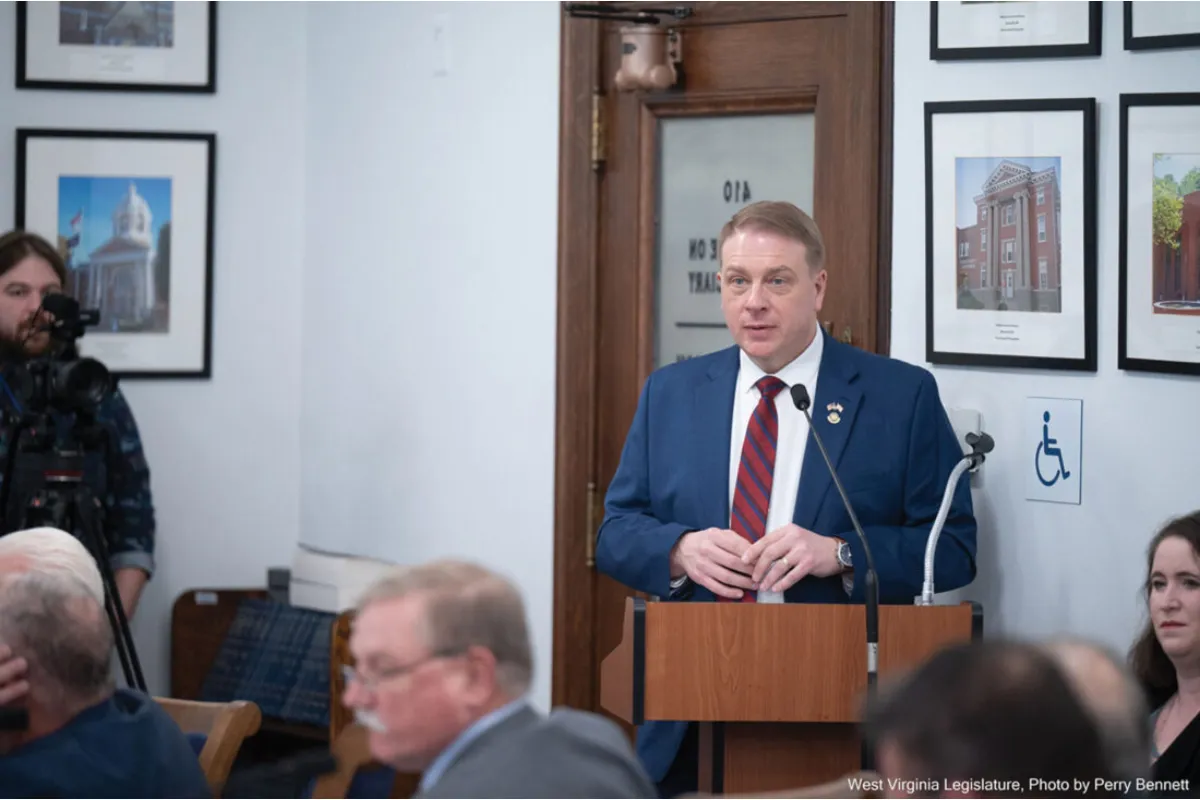A bill named in memory of a young woman who died from fentanyl poisoning is one step closer to becoming law in West Virginia. On Wednesday, the House Judiciary Committee advanced Senate Bill 196, known as Lauren’s Law, after making amendments aimed at tightening the state’s drug laws.
The legislation, which focuses on cracking down on high-level narcotics trafficking, is named in honor of Lauren Renee Cole, a 26-year-old from Morgantown who tragically died in 2020 after using heroin laced with fentanyl.
The original intent behind Lauren’s Law is to increase the severity of penalties for those distributing large quantities of dangerous drugs, including heroin, cocaine, methamphetamine, and fentanyl.
Among its key provisions, the bill raises the minimum sentence for drug delivery resulting in death from three years to 10 years. It also doubles the minimum penalty for failing to seek medical help for someone overdosing, increasing it from one year to two.
Lauren Cole’s death and the sentencing of the two men responsible—each receiving 15 years in prison—sparked a movement toward tougher consequences for those trafficking lethal drugs in the state.
SB 196 not only increases penalties for manufacturing, delivering, or possessing with intent to deliver Schedule I and II narcotics, but it also introduces mandatory minimums and eliminates leniency in sentencing for certain high-volume drug offenses.
The legislation would place new limits on probation, home confinement, and sentence suspension for crimes involving the transportation of large amounts of heroin, cocaine, methamphetamine, and fentanyl into West Virginia.
Additionally, the bill includes new sentencing guidelines for those involved in drug conspiracies, with harsher punishments for so-called “drug kingpins”—individuals who finance or manage drug networks.
The House Judiciary Committee made several key changes before advancing the bill. One amendment removed the “knowledge requirement” for enhanced fentanyl possession penalties.
It also adjusted the weight thresholds for conspiracy charges and clarified the definition of drug delivery resulting in death. Furthermore, penalties were increased for failure to render aid in overdose situations and for unlawful drug sales that result in death.
New language was added to define and punish drug kingpins more severely. These individuals, deemed responsible for managing major drug operations, will face stricter sentencing. The revised bill also updated the state’s recidivist law and further restricted the crimes for which judges can grant probation or alternative sentencing.
Senator Vince Deeds, R-Greenbrier, the lead sponsor of the bill, emphasized that Lauren’s Law is designed to go after the highest-level offenders—those bringing in and distributing deadly substances in large quantities. He noted during the committee hearing that West Virginia’s current drug laws are far more lenient compared to surrounding states.
“We realized that there was a gap in delivering controlled substances, and that’s what this bill targets,” said Deeds. “High-level controlled substances—the fentanyls, the LSD, the cocaine, the meth—those types of drugs. This just puts us on the same playing field as our surrounding states.”
Still, the bill sparked debate among lawmakers from both sides of the aisle. Some committee members raised concerns over the broad language used in the bill, particularly the inclusion of all Schedule I, II, and III drugs. Delegate Mike Hornby, R-Berkeley, asked whether the legislation could be interpreted to apply to marijuana or even hemp.
“That is a catch-all … that’s common language used in the drug code,” Deeds responded. “It’s just talking about the narcotic part of that bill.”
Delegate Bill Flanigan, R-Ohio, disagreed, suggesting that the bill’s language could inadvertently penalize individuals for transporting legal products that are still classified as narcotics under federal law.
Democratic lawmakers also questioned the removal of judicial discretion. Delegate Evan Hansen, D-Monongalia, asked if mandatory minimums would tie judges’ hands. Deeds responded that the new sentencing guidelines are meant to create consistency across counties.
House Minority Whip Shawn Fluharty, D-Ohio, expressed skepticism about whether the bill’s language matched its intended purpose. “What you want to do and what it actually does appears to be two different things,” he said.
While the bill has received support from law enforcement and officials who see it as a necessary tool in combating the state’s drug crisis, some critics question whether harsher penalties will lead to meaningful change.
Deeds admitted that no formal study was conducted to determine the effectiveness of mandatory minimums in deterring drug trafficking, noting that many factors contribute to the severity of the drug crisis in West Virginia.
As Lauren’s Law now heads to the full House for consideration, its path forward remains one of the most closely watched developments in West Virginia’s fight against drug-related deaths.













